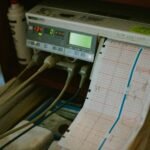-
Cheaper Cancer Treatment: How GST Cut on Lifesaving Medicines Brings Hope
How a Simple Tax Change Could Lighten the Burden on Cancer Patients If you or someone you love is battling cancer, every rupee counts. Fortunately, a recent policy shift by the Indian government is bringing tangible relief: the Goods and Services Tax (GST) on many life-saving medicines has been slashed — in many cases, to
-
Montelukast: Structure, Pharmacology, Mechanism, Uses, Side Effects, and Clinical Guide
Introduction Montelukast is a widely used leukotriene receptor antagonist (LTRA) indicated for the management of asthma, allergic rhinitis, and exercise-induced bronchoconstriction. Since its approval by the U.S. Food and Drug Administration (FDA) in 1998, Montelukast has become a cornerstone in the treatment of respiratory conditions, especially for patients who cannot tolerate or require adjunctive therapy
-
Biopsy: A Cornerstone in Modern Medical Diagnosis
Biopsy: A Cornerstone in Modern Medical Diagnosis Introduction A biopsy is one of the most valuable diagnostic tools in modern medicine. It involves the removal of a small sample of tissue, cells, or fluid from the body for microscopic and laboratory examination. Unlike imaging techniques such as X-rays, CT scans, or MRI, which provide structural
-
Diltiazem: Structure, Medicinal Chemistry, Mechanism, Pharmacology, Clinical Uses, Safety & Dosage
Diltiazem: Structure, Medicinal Chemistry, Mechanism, Pharmacology, Clinical Uses, Safety & Dosage Introduction Diltiazem is a benzothiazepine L-type calcium channel blocker (CCB) with balanced cardiac and vascular effects. It reduces myocardial oxygen demand by decreasing heart rate and afterload while increasing coronary perfusion through vasodilation. Clinically, diltiazem is used for hypertension, stable and variant angina, and
-
C-Reactive Protein (CRP) Test: A Complete Guide
C-Reactive Protein (CRP) Test: A Complete Guide Introduction The C-reactive protein (CRP) test is a simple yet highly valuable blood test that helps healthcare professionals detect and monitor inflammation in the body. CRP is a protein produced by the liver in response to inflammation caused by infections, autoimmune conditions, tissue injury, or chronic diseases. Measuring
-
Metformin Unveiled: A Scientific and Clinical Guide
Metformin Unveiled: A Scientific and Clinical Guide Metformin is one of the most widely prescribed and well-studied oral antidiabetic medications in the world. Metformin, a first-line therapy for type 2 diabetes, has been in clinical use for decades due to its proven efficacy, safety profile, and additional benefits beyond blood sugar control. This comprehensive guide delves
-
Zolpidem: Structure, Mechanism of Action, Clinical Uses, Side Effects, Dosage, and FAQs
Zolpidem: Structure, Mechanism of Action, Clinical Uses, Side Effects, Dosage, and FAQs Introduction Zolpidem is a widely prescribed sedative-hypnotic drug primarily indicated for the short-term management of insomnia. Unlike classical benzodiazepines, zolpidem belongs to the imidazopyridine class of drugs and selectively acts on the omega-1 subtype of GABA-A receptors. Because of its rapid onset and
-
Blogs, Biochemistry, Biostatistics, Biotechnology, Chemistry, Community Pharmacy, Hospital Pharmacy, Human Anatomy And Physiology, Inorganic Chemistry, Medicinal Chemistry, Microbiology, Miscellaneous, Novel Drug delivery Systems, Organic Chemistry, Pathophysiology, Pharma Updates, Pharmaceutical Analysis, Pharmaceutical Jurisprudence, Pharmaceutics, Pharmacognosy, Pharmacology, Pharmacy, practice mcq, Previous Question Papers, Social Pharmacy, Study Material
NEET-SS Pathology Exam 2025: Ultimate Guide to Ace Your Preparation

The NEET-SS Pathology exam is scheduled for November 2025, and if you are aspiring for DM/ MCh Oncopathology or other super-specialty programs, early and structured preparation is essential. This guide will help you navigate the best resources, mock tests, and study materials from eLearningFRCPath to boost your performance. Why NEET-SS Pathology Requires Focused Preparation The
-
“Betahistine: Structure, Mechanism of Action, Pharmacology, Clinical Uses, and Safety Profile
“Betahistine: Structure, Mechanism of Action, Pharmacology, Clinical Uses, and Safety Profile Introduction Betahistine is a histamine analogue widely used in the management of Ménière’s disease and vestibular vertigo. Since its discovery in the 1960s, betahistine has remained a cornerstone in treating vestibular disorders by improving inner ear microcirculation and modulating histamine receptors. It is particularly
-
Peptic Ulcer Disease
Peptic Ulcer Disease Introduction Peptic ulcer disease (PUD) is one of the most common gastrointestinal disorders worldwide, affecting millions of people annually. It refers to the development of open sores (ulcers) in the lining of the stomach, the first part of the small intestine (duodenum), or occasionally the lower esophagus. Despite being a treatable condition,
Search
Recent Posts
- Adrenochrome Explained: Biochemistry, Medical Reality, and the Truth Behind Viral Myths
- Tideglusib: Uses in Periodontal Regeneration, Bone Healing & Future Dental Therapies
- New Year Party Detox: A Complete Guide to Heal Your Body After Alcohol, Smoking & Junk Food
- Treadmill Test (TMT): Purpose, Procedure, Indications, Interpretation, and Clinical Significance
- 2D Echo Test (Echocardiography): Uses, Procedure, Normal Values, Cost, and Clinical Importance
Categories
- Biochemistry
- Biostatistics
- Biotechnology
- Blogs
- Chemistry
- Community Pharmacy
- Diagnostic tests
- Disease & Conditions
- Drug Index
- Featured Blog
- Hospital Pharmacy
- Human Anatomy And Physiology
- Inorganic Chemistry
- Lifestyle & Wellness
- Medicinal Chemistry
- Microbiology
- Miscellaneous
- Novel Drug delivery Systems
- Organic Chemistry
- Pathophysiology
- Pharma Instruments & Devices
- Pharma News & Updates
- Pharma Updates
- Pharmaceutical Analysis
- Pharmaceutical Jurisprudence
- Pharmaceutics
- Pharmacognosy
- Pharmacology
- Pharmacy
- practice mcq
- Previous Question Papers
- Social Pharmacy
- Study Material
Archive
- February 2026 (1)
- January 2026 (1)
- December 2025 (5)
- November 2025 (1)
- October 2025 (1)
- September 2025 (7)
- August 2025 (7)
- July 2025 (6)
- June 2025 (9)
- May 2025 (9)
- April 2025 (10)
- March 2025 (13)
- February 2025 (13)
- January 2025 (20)
- December 2024 (48)
- November 2024 (49)
- October 2024 (64)
- September 2024 (62)
- August 2024 (58)
- July 2024 (56)
- June 2024 (25)
- May 2024 (17)
- April 2024 (19)
- March 2024 (21)
- February 2024 (18)
- January 2024 (24)
- December 2023 (13)
Tags
biochemistry bpharmacy third semester Construction free practice mcq inorganic chemistry microbiology microbiology mcq pathophysiology Pharmaceutical Engineering pharmaceutics Pharmacology pharmacy practice mcq physical pharmaceutics physical pharmaceutics 2 practice MCQ for govt pharmacist exam







